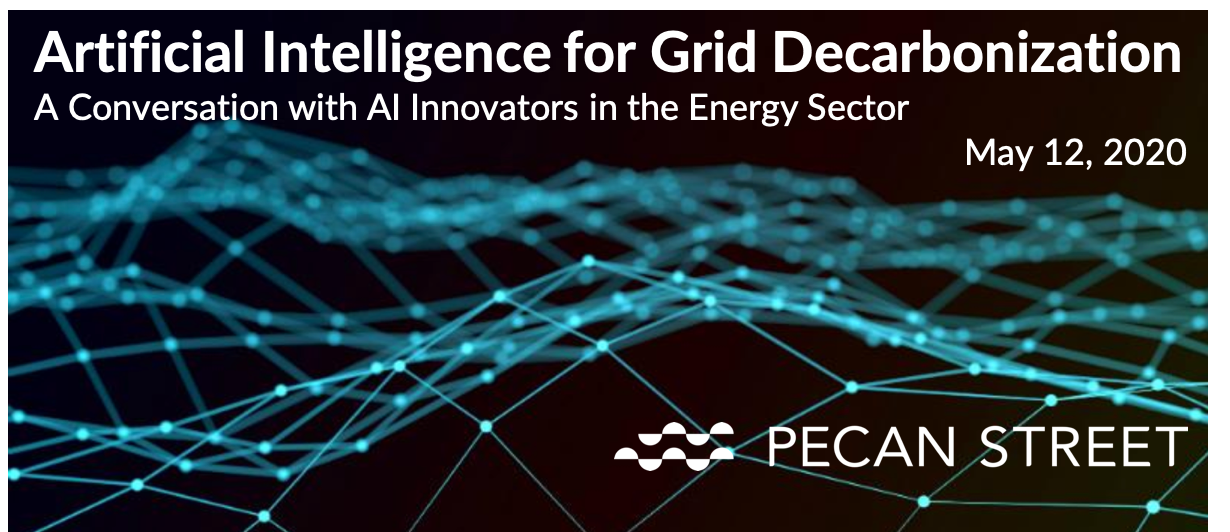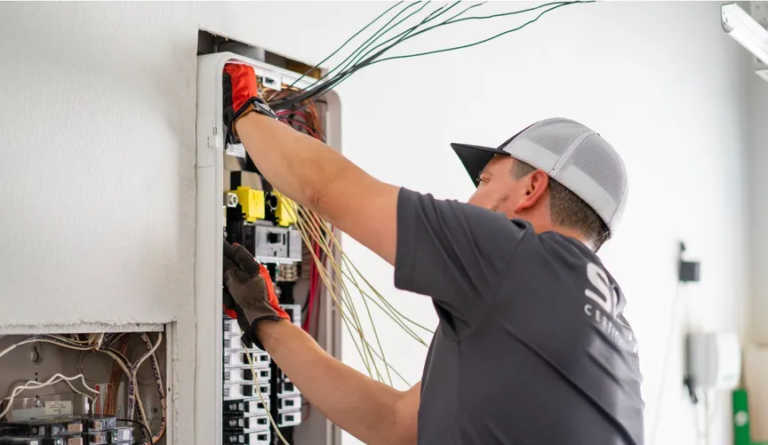April 29, 2020

Pecan Street is excited to announce our upcoming webinar, Artificial Intelligence for Grid Decarbonization. We’ll be joined by our partners at Cambridge Innovation Center and Beyond Limits to discuss near term opportunities and challenges for how to best leverage AI to accelerate grid decarbonization.
Speakers:
Suzanne Russo – CEO, Pecan Street
Kimberly Gilbert – Director of Technical Commercial Engineering, Beyond Limits
Stas Gayshan – Managing Director, Cambridge Innovation Center
Moderated by: Bart Bohn – Founder, Root Aspen
The conversation will include:
- A discussion of how AI can be used to make more informed decisions at the generation level
- Highlights from industry efforts to deploy AI for decarbonization
- The role that AI can play in optimizing renewable generation sources for a cleaner grid
Join us May 12 at noon CDT.
Register in advance below:
Speaker Bios:
- SUZANNE RUSSO – CEO, Pecan Street: Suzanne is chief executive officer for Pecan Street. Prior to joining the organization in 2010, she was director of sustainability initiatives for New York City’s Department of Housing Preservation and Development where she led the development of green building and sustainable retrofit standards for municipally-funded affordable housing. Over the past seven years, Suzanne served as chief of staff and then chief operating officer for Pecan Street, during which time Forbes named her one of five women ‘Using Technology to Blow Up Social Change.’ An urban planner with a masters degree in community and regional planning from the University of Texas at Austin, Suzanne has worked in Africa, China, India and the USA on community-based sustainable development.
- STAS GAYSHAN – MANAGING DIRECTOR, CIC: Stas Gayshan is Managing Director at CIC and Founder of CIC Boston. Stas leads the development of new CIC projects in the Americas, Asia, Australia, the Middle East, and beyond, connecting innovators across boundaries and borders. Stas works with governments, universities, large corporations, real estate developers, entrepreneurs, nonprofits, funders, and other stakeholders to solve difficult problems, build powerful, interwoven innovation ecosystems, and help cities craft lasting, impactful outcomes. A globally sought-after thought leader on innovation and entrepreneurship, Stas often speaks at conferences and judges startup competitions around the world.
- KIMBERLY GILBERT, PhD is Director of Technical Commercial Engineering at Beyond Limits, a pioneering AI company creating advanced software solutions for the world’s most demanding industries. Kimberly leads a team of Commercial Engineers to develop prototypes of cognitive solutions that solve industry challenges. Prior to Beyond Limits, Kim served as Director of R&D at ALOVIAM, a renewable energy startup. In 2015, Kim received her PhD in High Pressure Geochemistry from the University of Texas at Austin. Kim’s graduate research included creating a novel method to predict carbon dioxide solubility in aqueous solutions, which provided insight into the molecular interactions between carbon dioxide and dissolved ions in deep subsurface conditions. In 2016, her work was published by the peer-reviewed Journal, Applied Geochemistry. For over five years preceding graduate school, Kim worked at National Instruments – initially as an Applications Engineer, and ultimately as a Product Strategist guiding the development of a control hardware platform. Kim earned a PhD in High Pressure Geochemistry in 2015 from the University of Texas at Austin, and graduated Summa Cum Laude with a BSc degree in Chemical Engineering in 2000 from Arizona State University. In addition, Kim taught graduate-level Aqueous Geochemistry and undergraduate Research Methods courses at the University of Texas at Austin.
- Moderated By: BART BOHN – Founder, Root Aspen: Bart builds startup programs and supports entrepreneurs addressing climate and environmental impacts. He founded ATI Water, an incubation program focused on reducing water consumption in agriculture, energy production and manufacturing, and SEAL, the startup accelerator program at The University of Texas at Austin. His own startups have focused on applying big data tools and machine learning techniques and were part of Techstars, Austin Technology Incubator and Capital Factory.



















